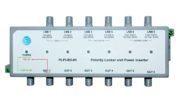Bar owners, we’re back with some more helpful information for any of you who’ve hired someone with the right attitude. Now it’s time to train that new employee for skill. We’re assuming you followed our interview tips and suggestion for a trial shift we detailed in the first part of this series. Based on the info we shared, we can assume that you’ve found the ideal candidate, they’ve passed the initial trial shift, and now they’re ready for their first real day at work. Signal Connect talked with a cross section of bar owners who came up with the following training advice for her hires at your bar.
Step 1: Establish Your Authority
Who’s the boss at your bar? It’s a silly question because the answer should be obvious. As a bar owner, you’re the one who runs the show. It’s important that all new hires know this, and you should establish this on their very first day on the job. Keep in mind, we’re not talking about being a drill instructor here.
The best way to establish your authority is to be professional with your employees. They’re not your friends, so don’t goof around or try to be funny, especially on their first day of employment. Establishing your relationship on a professional level from the start will help you manage these people over time. It also reinforces the relationship you should have with the rest of your staff.
Step 2: Orientation Process
What’s your orientation process like? This is a good time to share important information about your bar’s systems. This will familiarize your employee with the building blocks of your bar business. The best way to do this is by creating an orientation checklist that tracks the important stages of this process for your employees. This checklist should include the following:
- Receipt of all paperwork/information you need from them
- Fire safety
- Responsible alcohol service of alcohol
- Customer service
- Tipping policy
- Code of conduct agreement
- Operating hours
- Bar history
- Phone number and address of bar
- How to call a cab for overserved patrons
- Policy on removing patrons
- Operations manual
- FAQs about your business
- Entries and exits
- Locations of keys
- Basic service standards
Having employees sign a document as part of the orientation process protects you. It offers proof that your employees were trained and taught about what to do and not to do at your establishment. In the event you have to terminate this person’s employment, these signed documents offer you some protection. Note: always check with your attorney to make sure you’re doing everything thing you have to according to the labor laws in your state.
Step Three: Training
This phase offers new employees hands on training in most or all of the aspects of their job. During this phase, it’s best to make it a point to tell your new employees that “this is how we (your bar) do it,” or, “we do it this way to be better than our competition.” This gets your new hires in the mindset of thinking about your bar as the leader in your market. Your patrons will pick up on your employee’s positive attitude and they’ll believe your bar is the best, too.
Here are some of the things your training program should cover:
- Customer service (How you meet and greet customers, etc.)
- Cocktail creation
- Beer service
- How to set tables
- Point-of-sale systems
- Handling cash
- Cashing out customers
- Lottery rules (if applicable)
Much like your orientation process, the bar owners we spoke with recommended using a checklist during this process. You or your bar manager can track the employee’s development and sign off on each area that person completes. This lets you track the progress of the employee’s training. Be sure to keep this documentation in the staff member’s human resources file.
Step Four: Cross Training
As a bar owner, you probably know what cross training is. (It’s the process of training your staff in more than one area of operations.) Are you doing this for your employees? If not, you should. There are many benefits to having cross-trained employees at your bar, including:
- Creates excitement for employees who are a bit tired doing the “same old thing” every day.
- Allows staff to fill in when other employees are ill, absent, or running late.
- Assist in customer service and profitability through up-selling products, etc.
If you offer cross training at your bar, that’s great! You’re already enjoying the benefits of having staff whose skills exceed the limits of their job descriptions. If you don’t, you should incorporate this as soon as possible at your bar, pub, or tavern. Your employees and customers will thank you.
Bonus Tip: Cell Phone Booster for Bars
We shared the training tips above to help bar owners like you maximize your training opportunities. Providing quality customer service is the ultimate goal for having a well-trained bar staff. To that end, we hope this information will help every bar owner who reads this. Speaking of tips, we have another one for you: get a cellular phone signal booster for your bar.
If you were to do a poll, we bet that most if not all of your regulars have cell phones. Same goes for customers who pop in occasionally and for special events. Since so many people depend on these devices, it makes perfect sense to have a cellphone booster in your bar. This makes sure your patrons get the best cell phone service. No one wants dropped calls or data while they’re out having a good time.
Do you want to know more about how a cellular signal booster can enhance your customer service? Signal Connect is your cellular signal booster source! We carry a variety of these devices from weBoost and WilsonPro. Our customer service reps can match your bar with the ideal cell signal booster system. They’ll answer any questions you have. Just call us at 888-233-7563, or fill out the form below then click “submit.” One of our cell phone booster experts will contact you in one business day or less.





